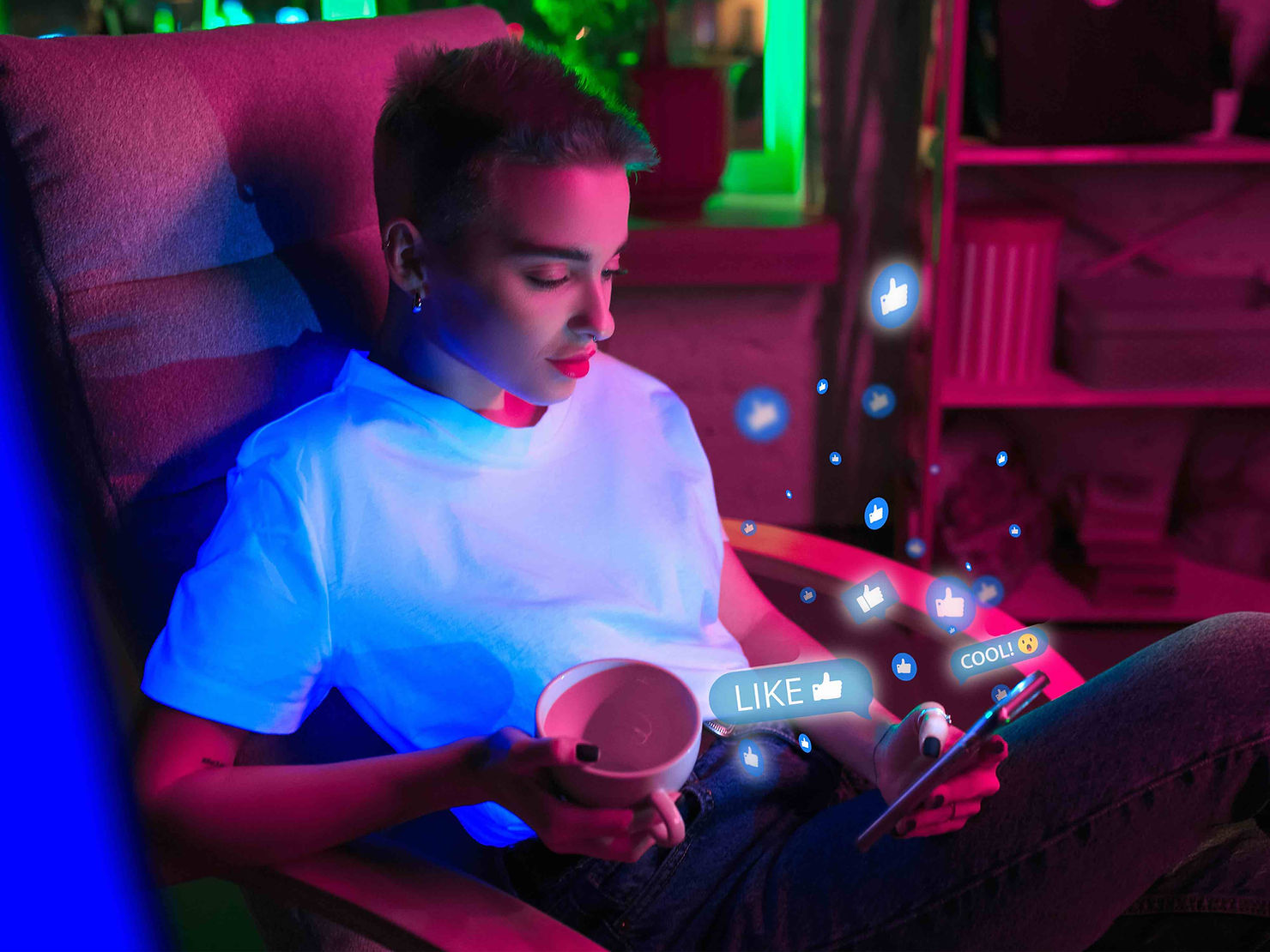The explosive rise in the use of social media is staggering, multiplying the slew of content growing online. With the number of app notifications flashing on the screens every five-ten minutes, the chances of falling into the trap of social media overload are high. This way, the user succumbs to spending a lot of time, impacting the quality and productivity at work. Thus, the power to connect online comes with a compromise in quality and productivity.
Social Media & Content Overloading
The advancement in technology has boosted the concept of ‘content overloading’ more than ever and it is now getting more crucial when brands and businesses focus on empowering their digital presence on social media. When the input of data or information in any form exceeds the processing capacity, it leads to ‘content overload’.
As per the reports from a leading digital consumer intelligence platform; millions of photos, videos, and other content are uploaded profoundly on almost every social media platform in a gap of every minute and the stats are proof:
- Instagram – 80 million reels uploaded every day
- Facebook – about 0.3 billion photos posted online
- Twitter – 500 million tweets
- YouTube – 18000 minutes of video uploaded every minute
On the contrary, we must not forget about our contribution to the daily overdose of content. Sharing my experience, on browsing Instagram, I am often smitten by the trending video reels. It intentionally or unintentionally gets me scrolling infinitely until my digital well-being app notification pops up prompting me to leave the app. This breakpoint makes me wonder whether this is all worth it or anyway useful for my work. Well, I strongly believe ‘information overloading’ is contributing to the information-driven world but in a very peculiar way, trying to mislead and leave us confused.
Impact & Ways to Deal with Overloading
We righteously believe that ‘excess of anything is a sign of disruption’. The same goes for the use of social media and engrossing in content overloading. The human brain is a genius but as per psychological studies, it can suffer a jerk because of the excessive access to irrelevant and unnecessary information spreading all over the internet. Some of the major effects include:
- Lack of productivity
- Impacts the quality of work
- Increased screen time
- Poor decision-making capacity
- Effect on mental and physical health
- Chances of memory loss
- Procrastination

While the impacts are uncountable, we sure have many ways to deal with it and snooze the social media game for a while.
1. Cutting the technology with technology
Many well-being apps or social management tools can help you control your time spent on social media. One such is Digital well-being. It provides features to temporarily disconnect from the essential apps by setting the focus and bedtime mode and managing screen interruptions with DND and notification settings. This way it will help you avoid social distractions and focus on your mental and physical well-being.
2. Choose relevance and need over multiple channels
Social media is a boon, it is just a matter of understanding. For instance, LinkedIn is a professional networking site and a job search portal combined. However, many users spam by profile checks, irrelevant posting similar to Facebook, unnecessary commenting and liking ultimately forgetting the purpose they’re using the app for. So, set your goals and purpose right when utilizing both the app and time.
3. Prioritize and categorize the usage of apps
Today, social media has become an essential entity in every individual’s life. This is why even leading brands or businesses have joined the social media bandwagon to lessen the communication gaps with their users. Now, is the right time for users and brands to learn to categorize apps. When it is about friends and family, promote using apps such as Facebook, Instagram, WhatsApp, and Snapchat but for professional contacts and networking, connect on LinkedIn.
Final Words
Do not get trapped by the ghost of content overloading, instead create a social diet and stick to the regime. After all, it is quintessential to strike the right balance between your work, personal, and social life in these testing times of the pandemic.

